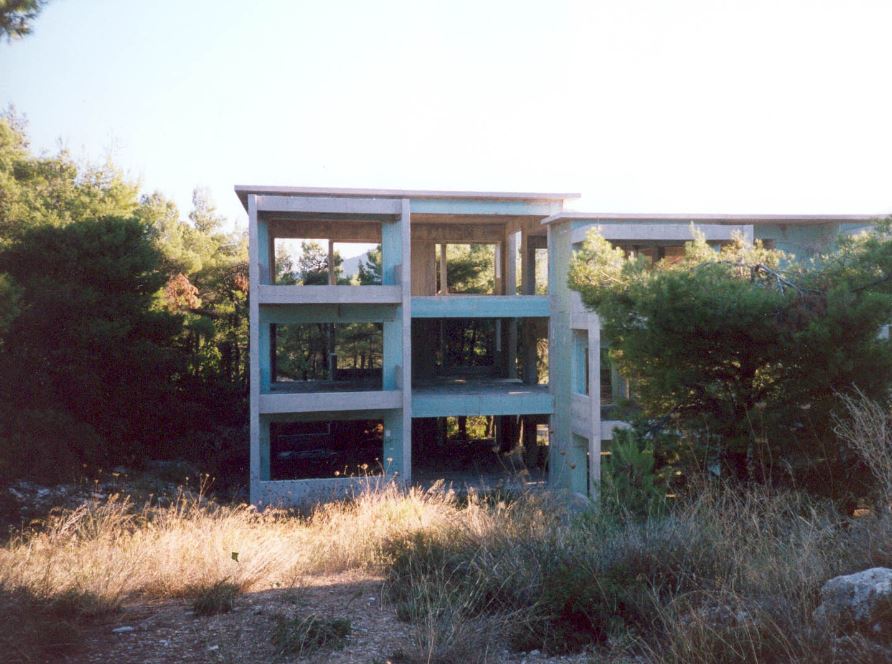You’ve all seen the cement skeletons scattered across Greece’s landscape—structures seemingly frozen in limbo for decades—or perhaps you’ve dined at a rustic beachside taverna built into the rocks, suspiciously lacking running water. Many of these are illegal structures, and it seems Greece is finally ready to tackle some of them via demolitions, made possible through subsidies from the Green Fund.
According to OT.gr, Greece’s Minister of Environment and Energy, Theodoros Skylakakis, has announced that the first round of demolitions of illegal structures is set to begin soon.
The process will be funded with €2 million from the Green Fund, allocated for the remainder of 2024 and into 2025.
Demolitions will occur “unexpectedly” on both new and old illegal structures, with priority given to those built after January 1, 2024, as reported by OT. Additionally, owners of these illegal buildings will be notified at the last minute, just before the demolition is set to commence.
OT explains that in the past, demolitions have been difficult to execute in close-knit communities, primarily due to resistance from both property owners and local private demolition companies, who refused to carry out the orders.
To address this, the new program will impose fines of €6,000 to €10,000 on private companies that have been ordered to conduct a demolition but refuse to do so, OT explains.
The First Illegal Structures to Go
While recently constructed illegal buildings will be first in line for demolition, OT elaborates that other priority targets will include illegal structures built on public land, buildings erected before July 2011 that were never legalized, and those “legalized” under laws 4114/2011, 4178/2013, and 4495/2017 through false declarations. Additionally, structures posing a threat to the environment will also be given priority.
Once a demolition order is issued, property owners can pursue legal action to request a cancellation, but the Ministry asserts that these cases will be resolved within 4.5 months. Alternatively, owners can choose to comply by either demolishing the structure themselves or restoring it to its lawful use. In such cases, the government will offer incentives, including a 50% reduction in fines and the cancellation of any pre-existing administrative sanctions.
However, this policy does not apply to larger, more problematic illegal buildings in Greece, categorized as “Category 5.” These structures are often linked to the public or broader public sector, and the Greek government has yet to find a solution for their demolition, as they cannot be included in existing European funding programs.



